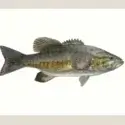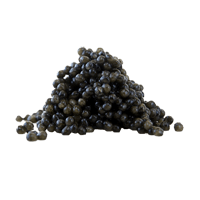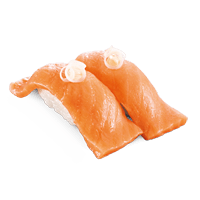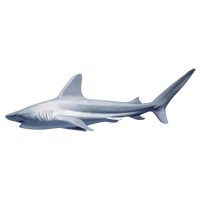Bass nutrition: calories, carbs, GI, protein, fiber, fats
Fish, bass, freshwater, mixed species, cooked, dry heat
*all the values are displayed for the amount of 100 grams
Top nutrition facts for Bass

| Calories ⓘ Calories for selected serving | 146 kcal |
| Insulin index ⓘ https://academic.oup.com/ajcn/article/66/5/1264/4655967 – II for white fish is 59 | 59 |
| Net Carbs ⓘ Net Carbs = Total Carbohydrates – Fiber – Sugar Alcohols | 0 grams |
| Acidity (Based on PRAL) ⓘ PRAL (Potential renal acid load) is calculated using a formula. On the PRAL scale the higher the positive value, the more is the acidifying effect on the body. The lower the negative value, the higher the alkalinity of the food. 0 is neutral. | 9.4 (acidic) |
Protein ⓘHigher in Protein content than 86% of foods
Potassium ⓘHigher in Potassium content than 86% of foods
Cholesterol ⓘHigher in Cholesterol content than 83% of foods
Phosphorus ⓘHigher in Phosphorus content than 78% of foods
Calcium ⓘHigher in Calcium content than 78% of foods
Bass calories (kcal)
| Calories for different serving sizes of bass | Calories | Weight |
|---|---|---|
| Calories in 100 grams | 146 | |
| Calories in 1 fillet | 91 | 62 g |
| Calories in 3 oz | 124 | 85 g |
Mineral coverage chart
Mineral chart - relative view
Vitamin coverage chart
Vitamin A:
105µg of 900µg
12%
Vitamin E:
0mg of 15mg
0%
Vitamin D:
0µg of 20µg
0%
Vitamin C:
6.3mg of 90mg
7%
Vitamin B1:
0.26mg of 1mg
22%
Vitamin B2:
0.27mg of 1mg
21%
Vitamin B3:
4.6mg of 16mg
29%
Vitamin B5:
2.6mg of 5mg
52%
Vitamin B6:
0.41mg of 1mg
32%
Folate:
51µg of 400µg
13%
Vitamin B12:
6.9µg of 2µg
289%
Vitamin K:
0µg of 120µg
0%
Vitamin chart - relative view
Macronutrients chart
Protein:
Daily Value: 48%
24.2 g of 50 g
24.2 g (48% of DV )
Fats:
Daily Value: 7%
4.7 g of 65 g
4.7 g (7% of DV )
Carbs:
Daily Value: 0%
0 g of 300 g
0 g (0% of DV )
Water:
Daily Value: 3%
68.8 g of 2,000 g
68.8 g (3% of DV )
Other:
2.3 g
2.3 g
Protein quality breakdown
Tryptophan:
813mg of 280mg
290%
Threonine:
3180mg of 1,050mg
303%
Isoleucine:
3342mg of 1,400mg
239%
Leucine:
5895mg of 2,730mg
216%
Lysine:
6663mg of 2,100mg
317%
Methionine:
2148mg of 1,050mg
205%
Phenylalanine:
2832mg of 1,750mg
162%
Valine:
3738mg of 1,820mg
205%
Histidine:
2136mg of 700mg
305%
Fat type information
Saturated fat:
1 g
Monounsaturated fat:
1.8 g
Polyunsaturated fat:
1.4 g
All nutrients for Bass per 100g
| Nutrient | Value | DV% | In TOP % of foods | Comparison |
| Vitamin A | 35µg | 4% | 38% | |
| Calories | 146kcal | 7% | 61% |
3.1 times more than Orange
|
| Protein | 24g | 58% | 14% |
8.6 times more than Broccoli
|
| Fats | 4.7g | 7% | 52% |
7 times less than Cheese
|
| Vitamin C | 2.1mg | 2% | 35% |
25.2 times less than Lemon
|
| Net carbs | 0g | N/A | 75% |
N/A
|
| Carbs | 0g | 0% | 100% |
N/A
|
| Cholesterol | 87mg | 29% | 17% |
4.3 times less than Egg
|
| Magnesium | 38mg | 9% | 27% |
3.7 times less than Almonds
|
| Calcium | 103mg | 10% | 22% |
1.2 times less than Milk
|
| Potassium | 456mg | 13% | 14% |
3.1 times more than Cucumber
|
| Iron | 1.9mg | 24% | 39% |
1.4 times less than Beef broiled
|
| Fiber | 0g | 0% | 100% |
N/A
|
| Copper | 0.12mg | 13% | 45% |
1.2 times less than Shiitake
|
| Zinc | 0.83mg | 8% | 57% |
7.6 times less than Beef broiled
|
| Phosphorus | 256mg | 37% | 22% |
1.4 times more than Chicken meat
|
| Sodium | 90mg | 4% | 50% |
5.4 times less than White bread
|
| Selenium | 16µg | 29% | 52% | |
| Manganese | 1.1mg | 50% | 31% | |
| Vitamin B1 | 0.09mg | 7% | 53% |
3.1 times less than Pea raw
|
| Vitamin B2 | 0.09mg | 7% | 71% |
1.4 times less than Avocado
|
| Vitamin B3 | 1.5mg | 10% | 62% |
6.3 times less than Turkey meat
|
| Vitamin B5 | 0.87mg | 17% | 39% |
1.3 times less than Sunflower seeds
|
| Vitamin B6 | 0.14mg | 11% | 57% |
1.2 times more than Oats
|
| Vitamin B12 | 2.3µg | 96% | 28% |
3.3 times more than Pork
|
| Folate | 17µg | 4% | 51% |
3.6 times less than Brussels sprouts
|
| Saturated fat | 1g | 5% | 60% |
5.9 times less than Beef broiled
|
| Monounsaturated fat | 1.8g | N/A | 55% |
5.3 times less than Avocado
|
| Polyunsaturated fat | 1.4g | N/A | 39% |
34.7 times less than Walnut
|
| Tryptophan | 0.27mg | 0% | 54% |
1.1 times less than Chicken meat
|
| Threonine | 1.1mg | 0% | 54% |
1.5 times more than Beef broiled
|
| Isoleucine | 1.1mg | 0% | 55% |
1.2 times more than Salmon raw
|
| Leucine | 2mg | 0% | 54% |
1.2 times less than Tuna Bluefin
|
| Lysine | 2.2mg | 0% | 52% |
4.9 times more than Tofu
|
| Methionine | 0.72mg | 0% | 50% |
7.5 times more than Quinoa
|
| Phenylalanine | 0.94mg | 0% | 56% |
1.4 times more than Egg
|
| Valine | 1.2mg | 0% | 54% |
1.6 times less than Soybean raw
|
| Histidine | 0.71mg | 0% | 58% |
1.1 times less than Turkey meat
|
| Omega-3 - EPA | 0.31g | N/A | 33% |
2.3 times less than Salmon
|
| Omega-3 - DHA | 0.46g | N/A | 33% |
3.2 times less than Salmon
|
| Omega-3 - DPA | 0.11g | N/A | 33% |
1.6 times less than Salmon
|
Check out similar food or compare with current
NUTRITION FACTS LABEL
Nutrition Facts
___servings per container
Serving Size ______________
Serving Size ______________
Amount Per 100g
Calories 146
% Daily Value*
7.3%
Total Fat
4.7g
4.6%
Saturated Fat 1g
0
Trans Fat
0g
29%
Cholesterol 87mg
3.9%
Sodium 90mg
0
Total Carbohydrate
0g
0
Dietary Fiber
0g
Total Sugars 0g
Includes ? g Added Sugars
Protein
24g
Vitamin D
0mcg
0
Calcium
103mg
10%
Iron
1.9mg
24%
Potassium
456mg
13%
*
The % Daily Value (DV) tells you how much a nutrient in a serving of food contributes to a daily diet. 2,000 calories a day is used for general nutrition advice.
Health checks
ⓘ
Dietary cholesterol is not associated with an increased risk of coronary heart disease in healthy individuals. However, dietary cholesterol is common in foods that are high in harmful saturated fats.
Source
Low in Cholesterol
ⓘ
Trans fat consumption increases the risk of cardiovascular disease and mortality by negatively affecting blood lipid levels.
Source
No Trans Fats
ⓘ
Saturated fat intake can raise total cholesterol and LDL (low-density lipoprotein) levels, leading to an increased risk of atherosclerosis. Dietary guidelines recommend limiting saturated fats to under 10% of calories a day.
Source
Low in Saturated Fats
ⓘ
While the consumption of moderate amounts of added sugars is not detrimental to health, an excessive intake can increase the risk of obesity, and therefore, diabetes.
Source
Low in Sugars
References
All the values for which the sources are not specified explicitly are taken from FDA’s Food Central. The exact link to the food presented on this page can be found below.


